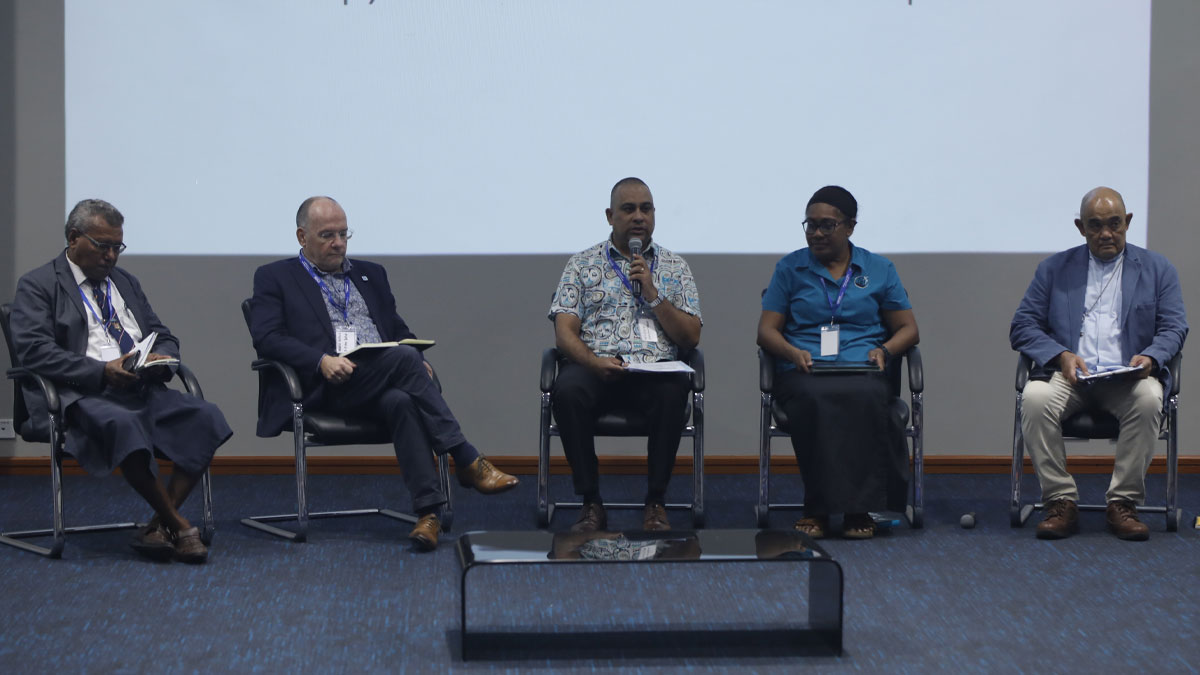
Related drugs stories;
Multi-million dollar hard drug busts in Nadi by Police
Drug fight escalates following rising discoveries around Fiji
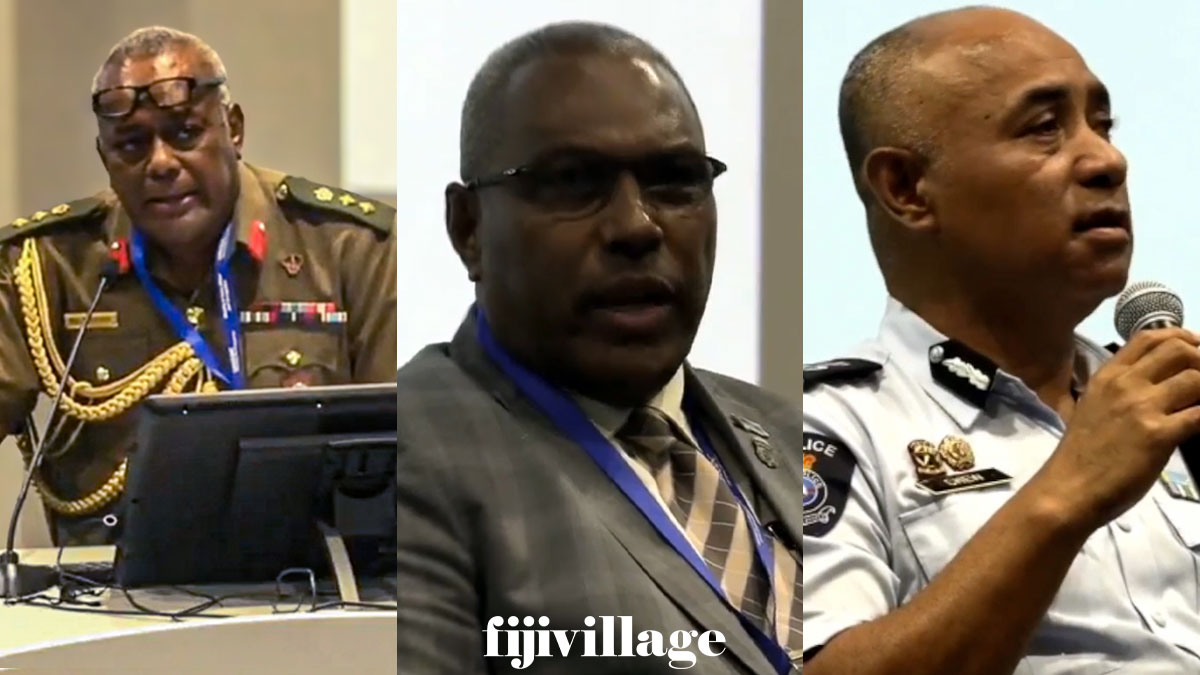
The pervasive threat of illicit drugs has emerged as a pressing concern, rapidly infiltrating and destabilizing our society therefore the Republic of Fiji Military Forces has proposed the utilization of firearms as a deterrent and means of enhancing security measures in tackling the drug crisis.
They are also raising the issue why there is still no Commissioner of Police, and say the priorities have to be set by the government.
While speaking on behalf of Army Commander, Major General Ro Jone Kalouniwai during the Ministry of Home Affairs Talanoa Session on Illicit Drugs and Substance Use Disorders in Fiji, RFMF Director Legal Services Colonel Kitione Tuinaosara says there is a growing call for decisive action to address this complex drug issue which is reaching alarming proportions and posing significant risks to public health, safety, and national security.
Colonel Tuinaosara says the Commander has already stated that drugs is now a national security concern.
However, he says the prospect of RFMF's engagement raises critical questions regarding the risks involved particularly in the absence of robust legislative support and clear guidelines governing military intervention in civilian matters.
He says as we navigate this juncture where the drug problem has evolved into a significant national security concern, it becomes imperative to explore how the RFMF can be effectively mobilized and utilized to confront the challenges posed by illicit drugs while ensuring accountability, legality, and the protection of fundamental rights.
He says through a comprehensive examination of the issues at hand and a commitment to constructive dialogue and informed decision-making, they endeavour to forge a path that not only addresses the immediate threats posed by the drug epidemic but also lays the foundation for sustainable, rights-respecting, and effective strategies for safeguarding our communities and enhancing national security in the face of evolving threats.
He says they have also made suggestions for including the legal and ethical considerations, operational challenges and strategies, legislative support and frameworks, collaborative approaches and community engagement.
He says by implementing these recommendations, Fiji can leverage the RFMF's works effectively and responsibility in addressing the drug issues as a national security concern.
He says a balanced and integrated approach that prioritizes collaboration, community engagement, legal compliance and ethical conduct can pave the way for sustainable progress in combating the drug problem and creating safer healthcare and a resilient society for all its citizens.
Colonel Tuinaosara further says when he questioned the Army Commander on why there is inaction, he was told that people don't know where to start as there is no strategic and operational intent from the government which is the first sign of inaction.
The RFMF has clearly stated that firearms should be used if the situation demands, and Police to coordinate with RFMF.
When questioned, Attorney General Siromi Turaga says he can recall that Police and the RFMF have used weapons before and there was a confrontation with drug dealers in Navosa.
He says if police officers are at risk, then it is fair to afford them that same level of protection.
Turaga says they are comforted by the fact that the strategy is being vetted and he is waiting for it to be tabled to Cabinet for endorsement.
He adds sometimes it takes longer for government agencies to get things right but they are talking.
The Attorney General says the Government is committed to dealing with the drug issues in the country.
When Colonel Tuinaosara was asked if he is satisfied with the government’s stand, he says it is very encouraging.
He says in fact, they have been assisting Police for a very long time and he remembers the incident in Navosa and that was done in self-defence.
He adds they intend to continue with that and if the government allows them to operate with Police especially when firearms are involved.
He further adds that he is not trying to scare anyone here but it will be helpful when dealing with drugs and weapons.
Colonel Tuinaosara stressed that the guns will not be used to conduct a coup or mutiny.
Acting Commissioner of Police Juki Fong Chew says drugs is our common enemy, and police have their role to play especially in combating drugs.
He says they look at the legislation, the support elements and the capabilities they have in order to fight the war against drugs.
Chew says if they hear from their intelligence before a raid is conducted that arms is involved from the other party, they engage the RFMF to assist them, especially when there is a suspicion that arms are involved.
He says this is done in order to safeguard those officers going to do the raid.
The Ministry of Home Affairs in collaboration with the United Nations Office on Drugs and Crime (UNODC) is organizing the two days’ National Talanoa Session on Responding to Illicit Drugs in Fiji Symposium.
The Talanoa session is supported by Communications Fiji Limited, the parent company of fijivillage, FM96, LegendFM, VitiFM, Navtarang, Radio Sargam, and the Fiji National University.
You can watch the full panel discussion on our website, fijivillage.
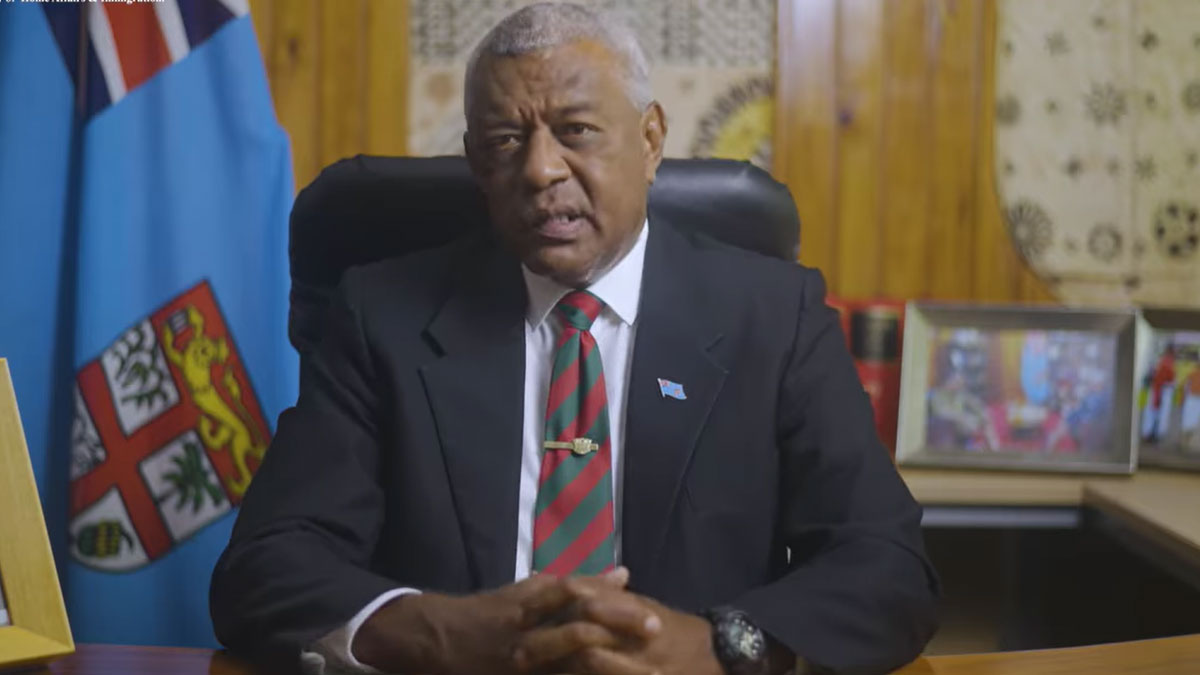
Minister for Home Affairs, Pio Tikoduadua says the use of firearms in law enforcement must be carefully considered, with robust legislative support and clear guidelines to ensure the well-being of our communities.
While responding to Republic of Fiji Military Forces Director of Legal, Colonel Kitione Tuinaosara’s presentation on behalf of the Army Commander during the Ministry of Home Affairs Talanoa Session on Responding To The Illicit Drugs Situation in Fiji, Tikoduadua says the RFMF’s proposal to utilize firearms as a deterrent and means of enhancing security measures in addressing the drug problem, highlights the importance of taking proactive steps to ensure public safety.
Tikoduadua says while they understand the intent behind this proposal, it is crucial to balance our actions with the protection of human rights and the trust of our citizens.
He says in response to the drug challenge, the Ministry is in the process of drafting the National Countering Illicit Narcotics Strategy 2023 to 2028.
Tikoduadua says this strategy outlines a comprehensive approach to address the issue of synthetic drugs, particularly methamphetamine.
The key initiatives include demand reduction and availability of controlled substances, supply reduction and alternative development, harm reduction, legal reform, data collection, analysis, and information sharing, establishment of a Narcotics Court, partnership, coordination, and international cooperation.
He says it is important to understand the context in which those statements were made; a “Talanoa” session where various points of view are taken.
Tikoduadua says the issue of illicit drugs is a significant concern that requires our collective effort as a nation.
He adds that they are committed to addressing the drug challenge with a balanced and comprehensive strategy, focusing on both immediate action and long-term solutions.
The Minister says they acknowledge that the government cannot do it alone, nor does it have a monopoly on the solutions.
They believe that the government works best in a strong supportive role with NGO’s and expert institutions leading the charge.
He says Talanoa and expertise sharing sessions like the one recently organised by the United Nations Office for Drugs and Crime is key to this strategy.
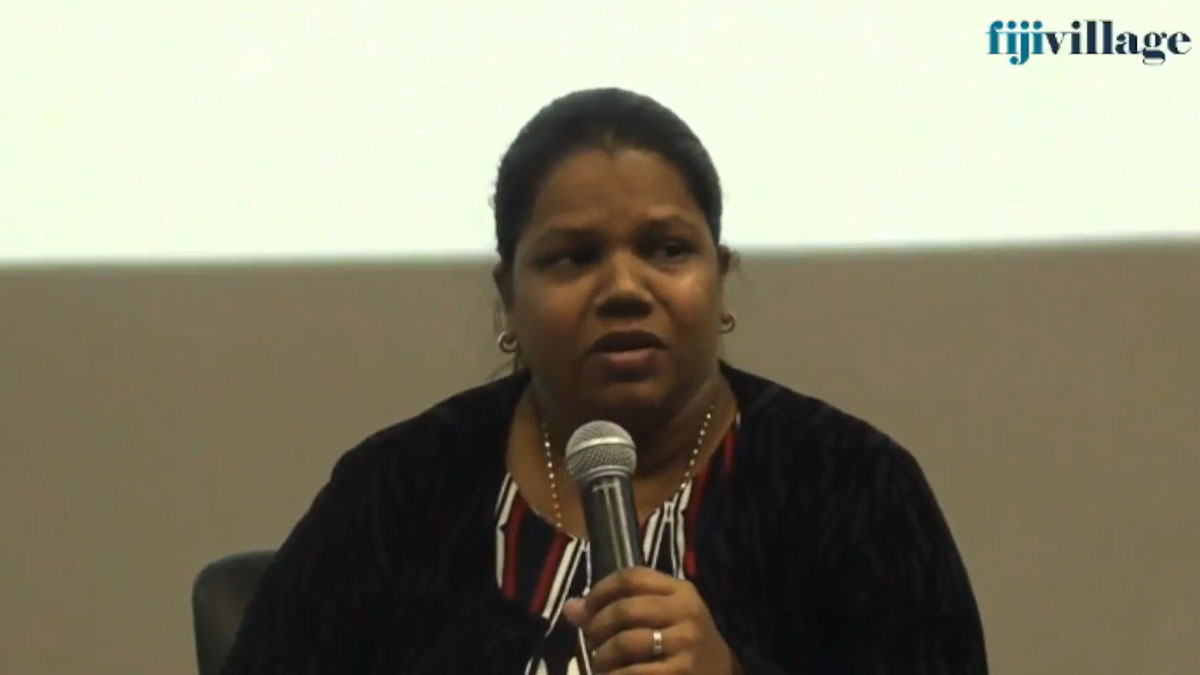
Head of Family Health from the Ministry of Health, Doctor Rachel Devi says bluetoothing and chemsex are super dangerous and this year alone, they are noticing an increase in injectable drug use with 25 percent of these cases coming out of that space, especially from one clinic.
Bluetoothing is a practice where youths withdraw blood after a drug hit and inject it into a second person.
While speaking during the Responding To Illicit Drugs National Talanoa Session at the FNU Campus in Nasinu, Dr Devi says when we talk about injectable drugs in Fiji and their relation to Health, consider that HIV has been one of the important rising factors and issues that has contributed to it alone.
She says when we look at the statistics, Fiji alone had 415 new cases of HIV last year and necessarily we cannot guarantee what percentage was due to injectable drug use but we can look at a good number that is coming out of it.
Dr Devi says in terms of rehabilitation, the contribution made by the Ministry of Foreign Affairs towards the strategic plan has enabled the Ministry of Health to have some consultation on the effect HIV and illicit drugs will bring into Fiji in the future.
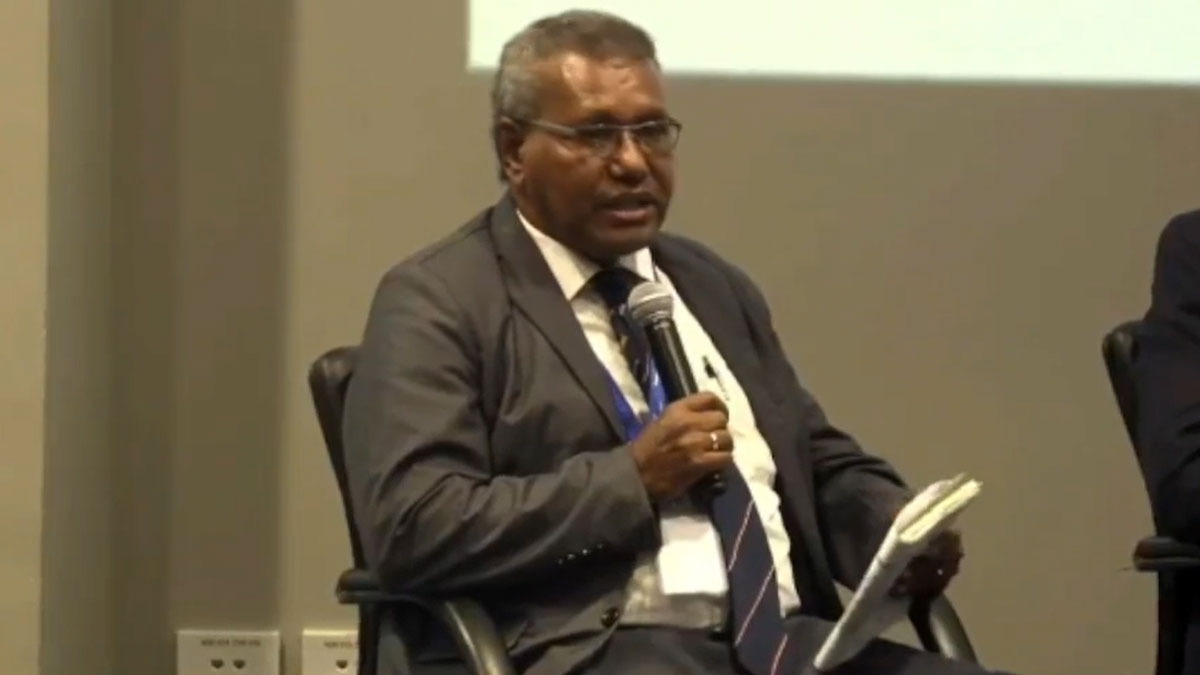
Drug use in schools has increased in the past 3 years as in 2021 there were about 2,400 reported cases, in 2022, they were 2,800 cases and last year, it increased to 3,500 cases which is a worrying trend.
This was revealed by the Acting Chief Executive Officer for Substance Abuse Advisory Council Josua Naisele during the Talanoa session at the Fiji National University on Responding to Illicit Drugs and Substance Use Disorders in Fiji.
Naisele says some students do drugs because of their peers, some use it as a coping technique while some are victims or survivors of abuses, such as child abuse, sexual abuse, neglect and exploitation which allows them to share and lighten their burden.
When questioned on how can CSO’s and NGO’s assist in combating illicit drugs for both supply and consumption, Naisele says they want to have a better collection of data which they can target the schools and districts with high cases of drugs to conduct awareness and training.
He says in their Unit and throughout Fiji, they have counsellors who listen to people's problems and provide them with services not only on drugs but other issues that affect them.
The CEO says through the counselling process they have managed to collect some in-depth information of what the students go through including the kind of family, the parental upbringing and all other social issues that affect their intellectual, social and emotional growth.
Naisele says they also want to engage parents and community leaders to address this issue and find ways of how to stop students from taking legal drugs because, one of the things that they find out during their counselling is that when students do drugs, they start with legal drugs such as cigarette, yaqona and alcohol.
He says they also have training programs conducted every year to empower students with leadership, decision making and coping skills for them to know how to look after their mental health including awareness programs in schools and in communities.
The CEO further says that the Ministry at the moment has 4 divisional counsels and in the next financial year they want to fill the 9 districts to have counsellors in the large secondary and primary schools as there are many students in the urban schools.
Naisele says they also have a community program which they started with Serua provincial last month and hopes to roll it out to other provinces in Fiji because they want to empower the parents and the community on how well they can protect the students in the environment.
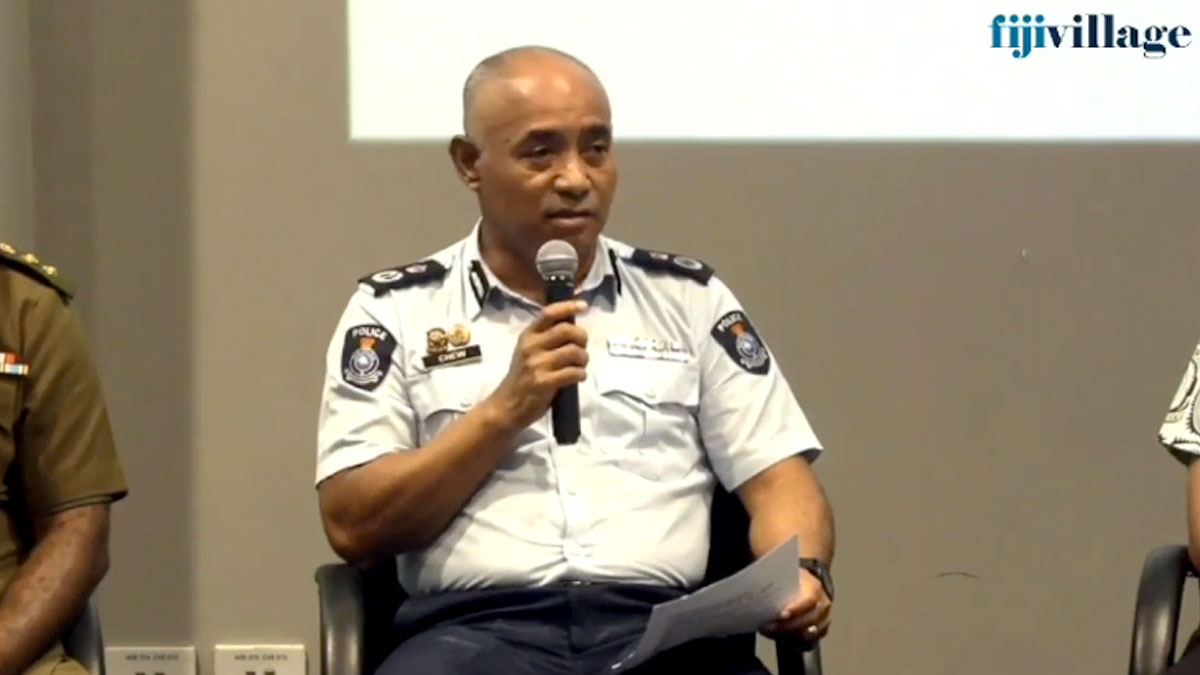
Acting Commissioner of Police Juki Fong Chew has made it clear that the Police Force cannot have officers who are involved in drugs.
While speaking at the Responding To Illicit Drugs National Talanoa Session held at the FNU Campus in Nasinu, Chew says he will not hide the fact that some Police officers are involved in drugs as reported in the media.
He says some have been taken to court and removed from the organisation entirely.
The Acting Commissioner adds that they need a clean organisation moving forward.
The Minister for Home Affairs, Pio Tikoduadua, is calling on the Fiji Police Force to clean up their own house first before they can look after others.
Speaking to fijivillage News at the Responding To Illicit Drugs National Talanoa Session at the FNU Campus in Nasinu, Tikoduadua says officers should be true to themselves and their professions so that people can have confidence in them.
He says at the moment this is the biggest challenge for whoever is going to become the Commissioner of Police as they are now looking for one because it needs a complete reshape, particularly on attitude, and re-work on the whole areas of police professionalism.
The Minister adds the work of a few bad cops is really tarnishing the Fiji Police Force in general.
Tikoduadua also highlighted that people who want to become part of the solutions to this issue are actually part of the problem.
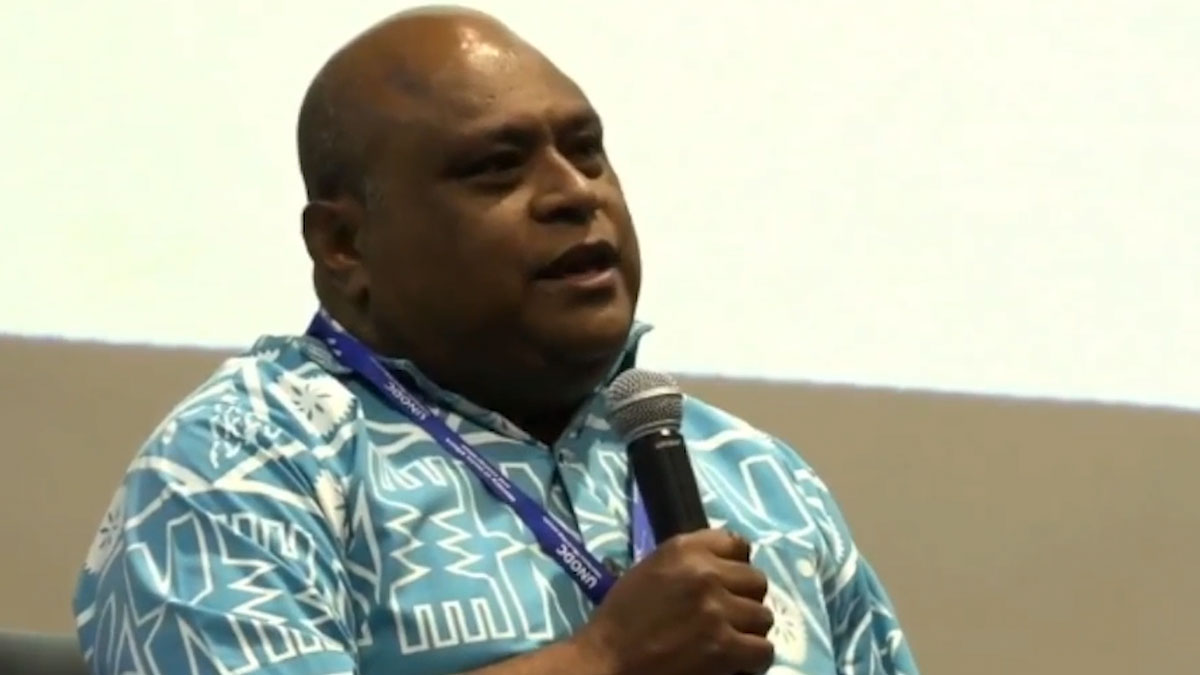
Persons living with disabilities can be at a high risk of substance abuse because of the challenges they face, for instance it can be a coping mechanism for them because of challenges such as anxiety.
National Council for Persons with Disabilities Executive Director, Lemeki Cagialau highlighted this during the Responding To Illicit Drugs National Panel Discussion at the Fiji National University Campus in Nasinu.
The Executive Director says with a point of view of the disability sector they need to keep in mind the vulnerabilities and challenges persons with disabilities face as it can be a huge risk and therefore they have to be proactive.
Cagialau says as a disability sector their job is to raise more awareness as information is vital and it should go down to the communities since it is everyone’s job to combat this challenge.
He says to do this they need to train communities so that with the right information communities will know to assist and encourage drug users not to take drugs.
He says on the other hand they should have proper support as urban sectors have more available mechanisms of support, however rural communities should also have it.
Cagialau says they should have accessibility in terms of health care and other services provided by the government because sometimes due to disability they can’t access services provided by the government. He further says they are thankful to CSOs and NGOs for the work they are doing in providing full information to communities to refrain from such activities.
The Executive Director says vulnerabilities such as poverty, unemployment and other issues can attract an individual towards drugs.
He says there is an organization within the disability sector which is called the Psychiatric Survival Association to assist those who have survived psycho-socio disabilities and discuss how to reach out to communities.
Cagialau says that there should be a very clear referral pathway so that communities know what are some signs and symptoms so that people in the community can understand when a person is taking drugs.
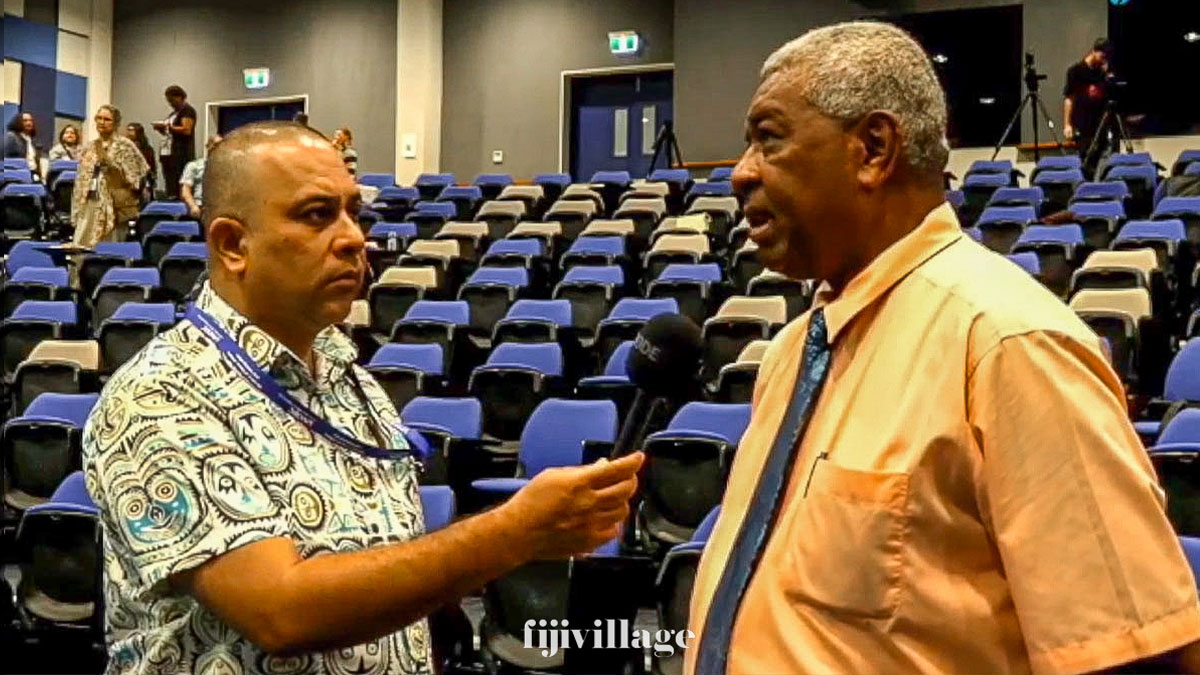
As concerns continue to be raised about Police Officers allegedly being involved in drug-related crimes, the Minister for Home Affairs, Pio Tikoduadua, is calling on the Fiji Police Force to clean up their own house first before they can look after others.
Speaking to fijivillage News at the Responding To Illicit Drugs National Talanoa Session at the FNU Campus in Nasinu, Tikoduadua says officers should be true to themselves and their professions so that people can have confidence in them.
He says at the moment this is the biggest challenge for whoever is going to become the Commissioner of Police as they are now looking for one because it needs a complete reshape, particularly on attitude, and re-work on the whole areas of police professionalism.
The Minister adds the work of a few bad cops is really tarnishing the Fiji Police Force in general.
Tikoduadua also highlighted that people who want to become part of the solutions to this issue are actually part of the problem.
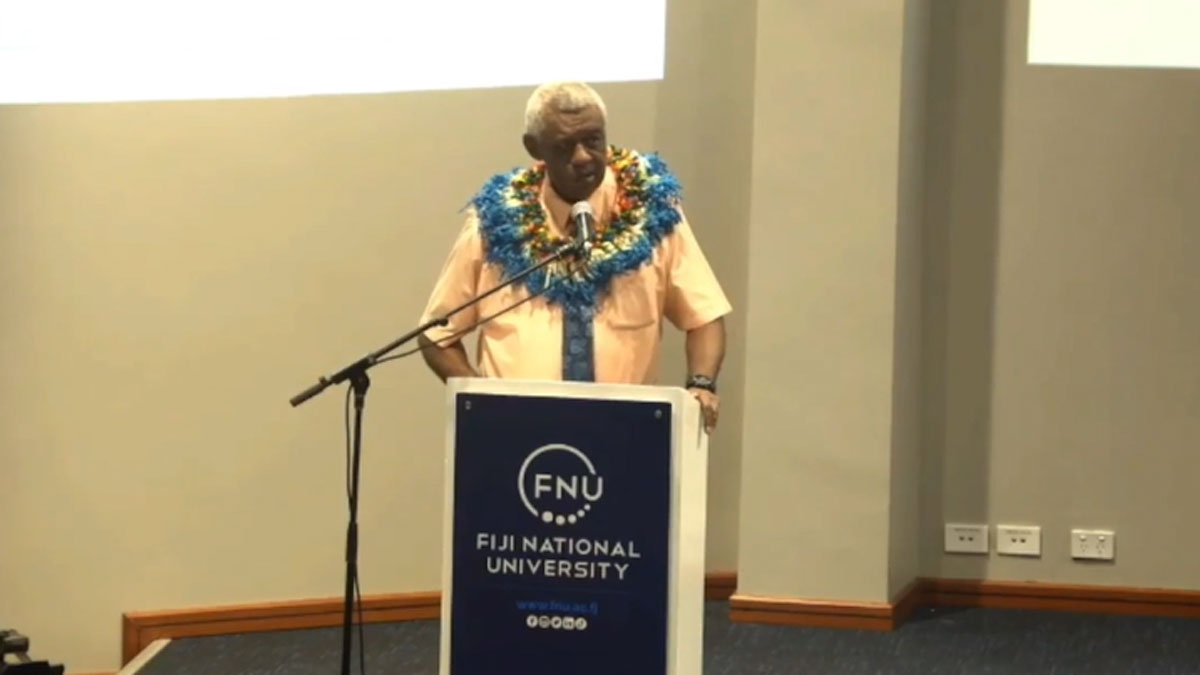
Minister for Home Affairs Pio Tikoduadua says the drug issues in the country has spread like wildfire over the past 12 months as there is a lot of reporting on this issue.
While delivering his speech during the Responding To Illicit Drugs National Talanoa Session at the FNU Campus in Nasinu, Tikoduadua says he, as a Minister, cannot blame history to be the explanation for the drug issues in Fiji today.
He says history is not just the study of the past but an explanation of the present. He says we have on our lap a challenge that concerns everyone in our society today, irrespective of which groups and communities we belong to, the problem collectively belongs to us.
He adds we may have a history of this problem from the different communities we come from and may be related to it, and it is something we cannot say that is not common. Tikoduadua says the challenge for him today as a Minister and a leader of a Ministry is what he is going to do about this problem in his term in government.
He says this contribution is part of a whole nation's effort in dealing with this issue that is second only to climate change, which is drug abuse. Tikoduadua says he acknowledges that his Ministry, which is responsible for security and keeping law and order, do not have all the solutions for this problem.
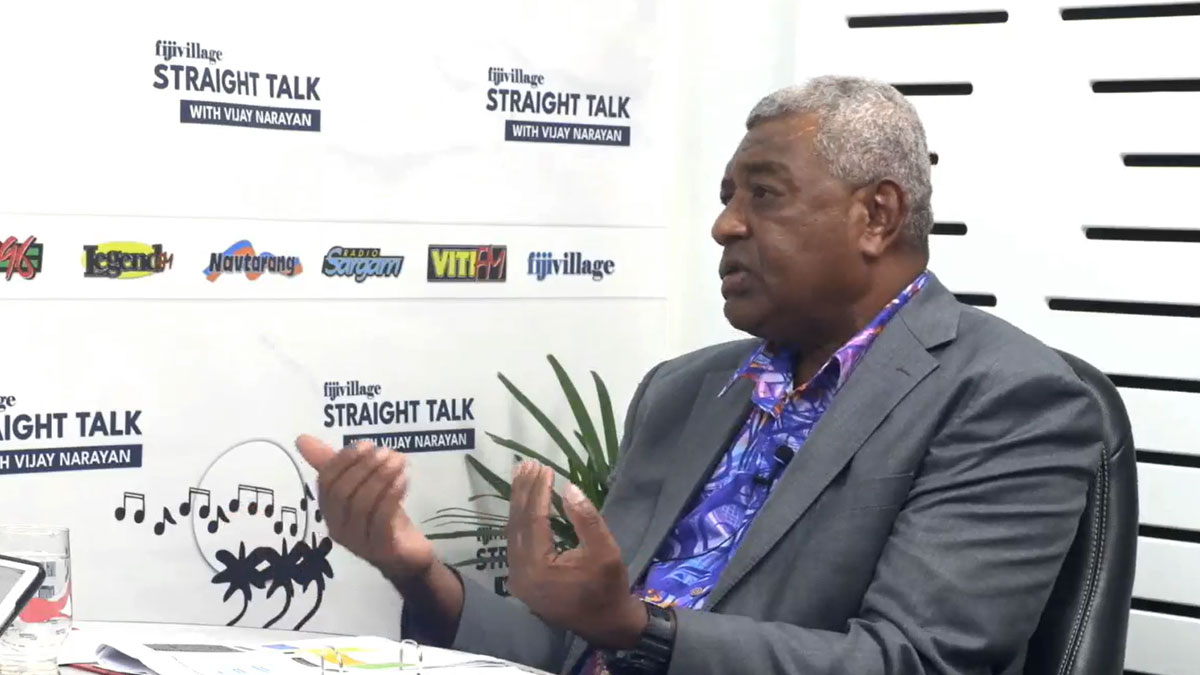
Minister for Home Affairs and Immigration Pio Tikoduadua is calling on parents and communities to take responsibility for looking after children as the government cannot control what goes beyond school hours.
While responding to questions on fijivillage Straight Talk with Vijay Narayan on what plans are there for the safety of our children, Tikoduadua says when you receive a report where a child is discovered with drugs in schools and that the drug is given to that child by their parents, one wonders what is the motivation behind this.
He says drastic steps were taken during the Coca-Cola Games, where sniffer dogs were used, but still people were bringing drugs.
The Minister says the Government has its own initiatives under the Education Ministry to try and prevent and stop the harm of drugs in the lives of children.
He adds parents must prioritise their children.
The Minister says the government is willing to tackle this issue and protect children from drugs through harm reduction and working with the Ministry for Education, Ministry for Women and Children and all its agencies.
He says however at the end of the day, it calls for parental responsibility.
Click here for stories on the Drugs Situation in Fiji
Stay tuned for the latest news on our radio stations

